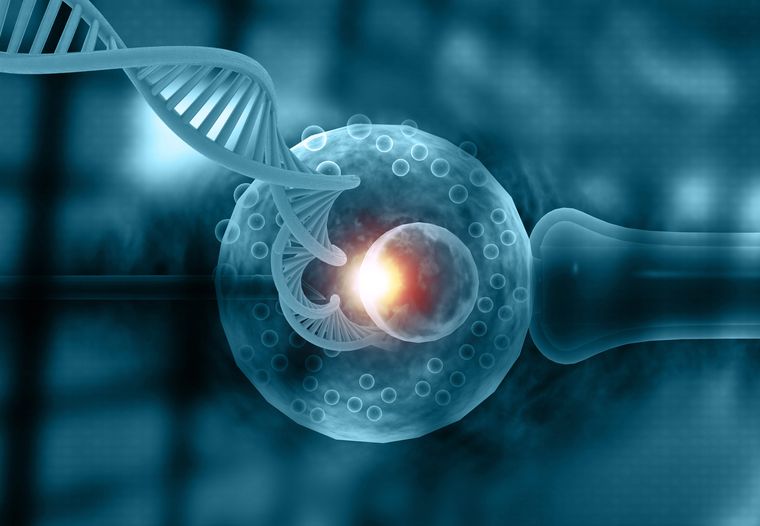The pandemic has put life on a pause. In many parts of the world, routine fertility care, elective surgeries and fertility treatments such as intrauterine insemination (IUI) and in-vitro fertilisation (IVF) have been put on hold due to the pandemic.
Pandemic or not, people are being diagnosed with cancer, including many young patients. Over the past few decades, the number of young, reproductive age cancer survivors has increased as a result of improved and less destructive cancer treatments. Certain types of cancers are predominantly diagnosed among reproductive age women and a small proportion of cancers originating in the reproductive tract are also detected in this age group. For young patients, the diagnosis of cancer is a shock in itself and then the risk of infertility. Unfortunately, fertility preservation services are rarely discussed with the patient before starting cancer therapy. At the end of the cancer treatment, patients are shocked by the loss of their fertility and there are many studies showing this as one of the most pervasive regrets for these patients. Patients often consider the negative impact of cancer on their fertility as the most traumatic part of their diagnosis.
If you or some young person you know has been diagnosed with cancer, read on to know how cancer treatments can affect fertility and the various fertility preserving options available today which can help cancer survivors fulfil their dreams of parenthood.
How does cancer affect fertility?
Cancer surgery or treatments and sometimes the cancer itself can interfere with some parts of the reproductive process and affect the ability to have children. The effects might be temporary or permanent. The risk that the cancer treatment will harm fertility depends on the patient’s age, the type and stage of cancer and the type of treatment.
Surgery: Surgical removal of the testicles (orchidectomy), uterus (hysterectomy) or ovaries (oophorectomy) have an obvious negative impact on future fertility. Also, cancer surgery for other tumours in the abdomen or pelvis can cause scarring (adhesions) in and around the reproductive organs. These adhesions might block the fallopian tubes preventing the egg from travelling to the sperm or preventing the implantation and growth of a fertilised egg.
Chemotherapy: The effect of chemotherapy on fertility depends on the drug and the dose. Alkylating agents and the drug cisplatin are known to cause the maximum damage. Women who require higher doses, combination regimens or both chemo and radiation therapy to the abdomen or pelvis are at higher risk of permanent damage to fertility.
Radiation: The damage caused by radiation depends on the location and size of the radiation field and the dose given. High doses of radiation can destroy many or all of the eggs in the ovaries leading to infertility and early menopause. Radiation damage to the uterus can increase the risk of miscarriage, preterm birth and low birth weight babies.
Other cancer medications
Hormone therapies used to treat certain cancers, including breast cancer in women, can affect fertility. The effects are often reversible and fertility may be restored after the end of treatment.
Fertility preservation means preserving the ability of a person or a couple to start a family at a time of their choosing. Oncofertility is a term coined for fertility preservation in cancer patients. Current data suggests that for most tumours, pregnancy after cancer treatment does not increase the risk of cancer progression or of poor obstetric or neonatal outcome. With improved survival after cancer treatment, the emphasis has moved from providing life to providing quality of life.
Fertility preservation options for women
The mainstay of fertility preservation for women is freezing of eggs or embryos generated through the IVF process.
Embryo cryopreservation: For this procedure, the patient needs to undergo an IVF cycle which involves ovarian stimulation, egg retrieval and fertilisation in the IVF laboratory followed by freezing of the embryos. The frozen embryos can be transferred to the womb at a later date. Embryo cryopreservation is a well-established technology that provides a good success rate depending on the number and quality of embryos.
Oocyte cryopreservation (egg freezing): In this procedure, eggs are retrieved after ovarian stimulation and the unfertilised eggs are frozen. This is the standard method for preserving fertility for young single women with cancer.
Egg or embryo freezing procedures require controlled ovarian stimulation, which takes approximately two weeks. The usual ovarian stimulation protocols for routine IVF begin from the second day of the menstrual cycle, but today random start protocols (where ovarian stimulation can be started on any day of the menstrual cycle) are possible to avoid delay in cancer treatment.
Oophoropexy (ovarian transposition): For women who undergo radiation therapy to the pelvic area, the ovaries are surgically repositioned in the pelvis so that they are out of the radiation field.
Radiation shielding: In this procedure, small lead shields are placed to reduce the amount of radiation exposure to the ovaries.
Fertility sparing surgery: Fertility sparing surgery is the technique to retain the patient’s uterus and ovarian tissue enough to allow future conception. This may be an option for young women with early stage cervical cancer and some types of ovarian and endometrial tumours.
Fertility preservation options for men
Sperm cryopreservation (semen freezing): This procedure involves freezing and storing sperm at a fertility clinic or sperm bank for use at a later date.
Radiation shielding: In this procedure, small lead shields are placed over the testicles to reduce the amount of radiation exposure.
Fertility preservation can increase the likelihood of future pregnancy for young cancer survivors. More importantly, it provides patients with hope and a positivity during a very negative time in their lives.
The current unpredictable pandemic situation has certainly made cancer care and fertility preservation even more challenging. On the one hand, fertility treatment is considered an elective procedure and hence not a priority during a pandemic. On the other hand, urgent fertility preservation is needed and should be offered to young cancer patients. With utmost caution and strict adherence to the safety protocols and local guidelines, oncofertility is a feasible option, giving hope for young patients with cancer.
The damage caused by cancer treatment to fertility is often irreversible and fertility preservation prior to cancer treatment can help young cancer survivors fulfil their dream of parenthood. In spite of the threat from the pandemic, it is important for young cancer patients to seek guidance and counselling from fertility specialists regarding the options available to them.
Sathe is a fertility consultant at Nova IVF Fertility, Mumbai.




